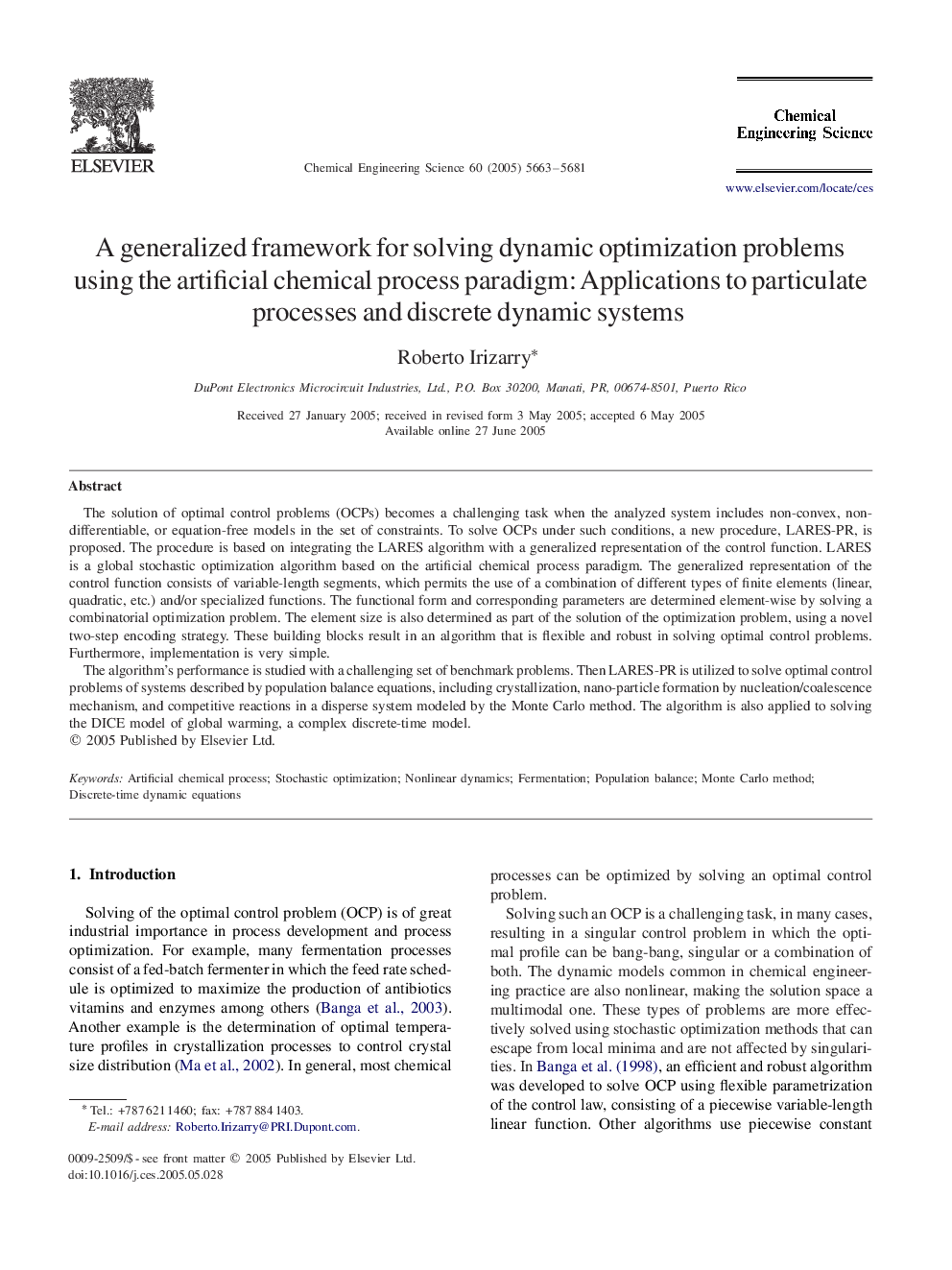| Article ID | Journal | Published Year | Pages | File Type |
|---|---|---|---|---|
| 159416 | Chemical Engineering Science | 2005 | 19 Pages |
The solution of optimal control problems (OCPs) becomes a challenging task when the analyzed system includes non-convex, non-differentiable, or equation-free models in the set of constraints. To solve OCPs under such conditions, a new procedure, LARES-PR, is proposed. The procedure is based on integrating the LARES algorithm with a generalized representation of the control function. LARES is a global stochastic optimization algorithm based on the artificial chemical process paradigm. The generalized representation of the control function consists of variable-length segments, which permits the use of a combination of different types of finite elements (linear, quadratic, etc.) and/or specialized functions. The functional form and corresponding parameters are determined element-wise by solving a combinatorial optimization problem. The element size is also determined as part of the solution of the optimization problem, using a novel two-step encoding strategy. These building blocks result in an algorithm that is flexible and robust in solving optimal control problems. Furthermore, implementation is very simple.The algorithm's performance is studied with a challenging set of benchmark problems. Then LARES-PR is utilized to solve optimal control problems of systems described by population balance equations, including crystallization, nano-particle formation by nucleation/coalescence mechanism, and competitive reactions in a disperse system modeled by the Monte Carlo method. The algorithm is also applied to solving the DICE model of global warming, a complex discrete-time model.
